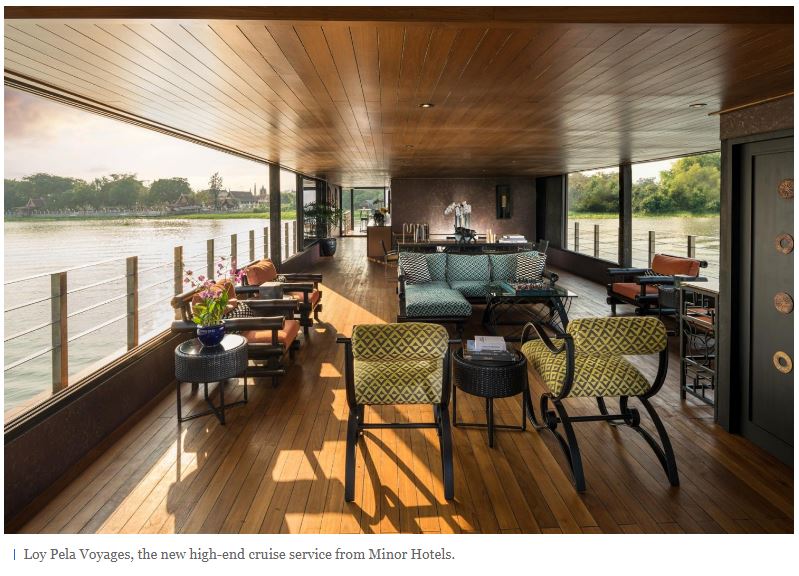Thailand: Safe reopening key to hotels’ recovery
Reducing the mandatory quarantine period and reopening the border safely and slowly are the keys to tourism recovery for all stakeholders as domestic demand alone is not sufficient for survival, according to Minor Hotels.
Small businesses will be hurt more than big players if the borders remain closed, with the unemployment rate expected to surge, said Michael Marshall, chief of commercial operations at Minor Hotels.
He said even Minor, which has 534 hotels globally, has reopened just over 90% of its portfolio, but those properties have to rely on the domestic market.
For instance, Thailand’s hotels improved their performance after the lockdown was relaxed in the middle of the year and most hotels could benefit from the government’s domestic subsidy scheme, but earnings were still less than 50% compared with the normal levels.
“We had 24% of bookings from domestic stimulus campaign, ‘We Travel Together’, but the Thai market mostly filled up on the weekends, which is different from the pre-pandemic period when hotels would have international visitors help balance occupancy during weekdays,” said Mr Marshall.
The United Arab Emirates saw stronger growth as there is a large number of expatriates and local guests with high purchasing power, while the Maldives could perform better as guests were not bound by mandatory quarantine, he said.
To boost domestic market in Thailand, Mr Marshall said the company launched new products to serve growing demand for wellness by partnering with three global medical and wellness companies.
Bangkok, Phuket and Hua Hin will be models for wellness investment as Minor plans to roll out Clinique La Prairie Aesthetics & Medical Spa at St. Regis Bangkok in December.
This service is the first branch of Clinique La Prairie overseas, as it originated in Switzerland and never expanded outside its country.
Mr Marshall said Covid-19 accelerated wellness demand globally, and the company will use this opportunity to prepare for a comeback as people focus on healthy living and well-being.
According to the Global Wellness Economy Monitor, this segment grew 6.4% annually, representing 5.3% of global economic output.
Of the total, wellness tourism was worth around US$639 billion.
Minor also partnered with Verita Health from Singapore and VLCC from India in expanding its medical hub within their properties, before finding ways to expand this model to other hotels outside Thailand.
Prior to the pandemic, 90% of guests at Minor hotels in the country were foreigners, but now Minor has to rely on the domestic market by offering additional products and promotions that cater to specific needs.
It also unveiled two high-end boats for day or overnight trips to Ayutthaya, and two new bars and restaurants to strengthen food and beverage revenue.
Source: https://www.bangkokpost.com/business/2017551/safe-reopening-key-to-hotels-recovery


 English
English




